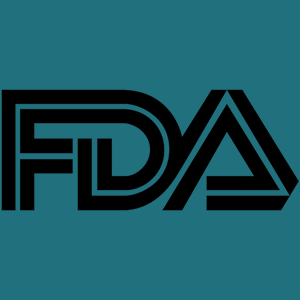AADC Deficiency Gene Therapy up For FDA Priority Review
Eladocagene exuparvovec is approved in the United Kingdom and European Union under the name Upstaza.
AADC Deficiency Gene Therapy up For Priority Review in US

The FDA has accepted PTC Therapeutics’ biologics license application for eladocagene exuparvovec gene therapy with priority review for treating patients with aromatic L–amino acid decarboxylase (AADC) deficiency with a PDUFA date of November 13, 2024.1
Eladocagene exuparvovec is approved in the United Kingdom and European Union under the name Upstaza for children aged 18 months or older with a severe phenotype of AADC deficiency.2,3
"We are excited to be one step closer to bringing an approved therapy to patients with AADC deficiency in the United States," Matthew B. Klein, MD, Chief Executive Officer, PTC Therapeutics, said in a statement.1 "The data collected to date continue to support the transformative benefit of Upstaza, this highly innovative gene therapy directly infused into the brain."
Eladocagene exuparvovec uses a recombinant adeno-associated virus serotype 2 (AAV2) vector to deliver the human DDC gene directly into the putamen with a stereotactic surgical procedure, increasing the AADC enzyme and restoring dopamine production.
WATCH NOW: Krystof Bankiewicz, MD, PhD, on GDNF Gene Therapy for Parkinson’s and AADC Deficiency
The BLA submission and European approvals are based off of data from phase 1/2 clinical trials of Upstaza (NCT01395641; NCT02926066) that demonstrated that treated patients reached clinically meaningful developmental milestones not seen in the natural history of the disease.
“Without treatment, most children born with AADC deficiency will have difficulty with their development and many of the symptoms can be distressing and life-threatening. The impact on those living with AADC and their communities is significant, with children facing frequent hospitalizations, emergency visits, and requiring a multi-disciplinary team of highly trained specialists,” Kirsty Hoyle, chief executive officer, Metabolic Support UK, said in a previous statement.2
Investigators found that treated participants who had not previously reached any developmental motor milestones mastered clinically meaningful motor skills including independent ambulation. Additionally, cognitive and language acquisition was achieved as early as 3 months after administration. Clinical benefits were shown to persist up to 10 years after administration. Additionally, reductions in symptoms that could lead to potentially fatal complications were observed. The most common adverse events reported during Upstaza’s clinical trials included initial insomnia, irritability, and dyskinesia.
"The standard diagnosis for AADC deficiency is lumbar puncture, and it's more than a regular lumbar puncture... We need to measure the neurotransmitter and only 1 or 2 labs in in each state or country [might be capable of this]. So it's a huge hurdle in the diagnosis of this disease," study investigator Paul Wuh-Liang Hwu, MD, PhD, professor, National Taiwan University Hospital, previously told CGTLive®.
The BLA acceptance comes over 1 year after PTC held a type C meeting with the FDA preparing for the BLA. At the time, the FDA requested additional bioanalytical data to support comparability of the drug product evaluated in the clinical trials with commercial Upstaza.4
REFERENCES
1. PTC Therapeutics Announces FDA Acceptance and Priority Review of the BLA for Upstaza™. News release. PTC Therapeutics. May 14, 2024. https://www.prnewswire.com/news-releases/ptc-therapeutics-announces-fda-acceptance-and-priority-review-of-the-bla-for-upstaza-302144369.html
2. Upstaza gene therapy granted marketing authorization for AADC deficiency by UK's MHRA. News release. PTC Therapeutics, Inc. November 17, 2022. https://ir.ptcbio.com/news-releases/news-release-details/upstazatm-gene-therapy-granted-marketing-authorization-aadc 3. Upstaza granted marketing authorization by European Commission as first disease-modifying treatment for AADC deficiency. News release. PTC Therapeutics. July 20, 2022. Accessed July 20, 2022. https://ir.ptcbio.com/news-releases/news-release-details/upstazatm-granted-marketing-authorization-european-commission
4. Tai CH, Lee NC, Chien YH, Byrne BJ, Muramatsu SI, Tseng SH, Hwu WL. Long-term efficacy and safety of eladocagene exuparvovec in patients with AADC deficiency. Mol Ther. 2022;30(2):509-518. doi:10.1016/j.ymthe.2021.11.005
5. PTC Therapeutics provides a corporate update and reports third quarter financial results. News release. PTC Therapeutics, Inc. October 27, 2022. https://ir.ptcbio.com/news-releases/news-release-details/ptc-therapeutics-provides-corporate-update-and-reports-third-0
Newsletter
Stay at the forefront of cutting-edge science with CGT—your direct line to expert insights, breakthrough data, and real-time coverage of the latest advancements in cell and gene therapy.